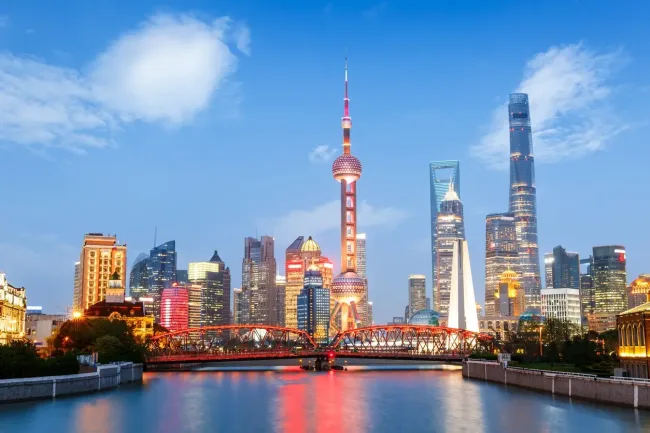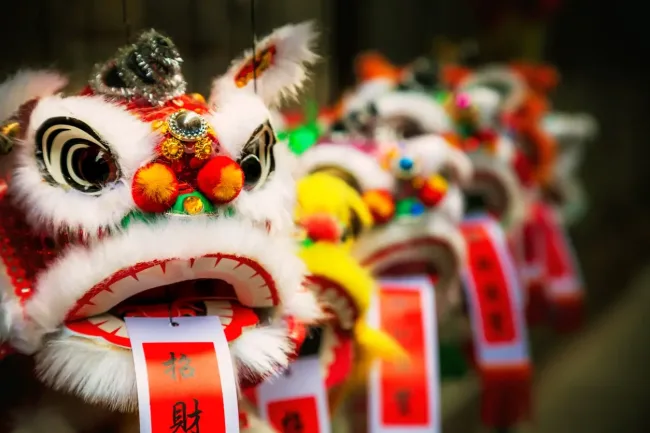
China
Welcome to China
Traveling to China? You may need a visa – find out if you do, which type, and how to apply so you can get the paperwork out of the way and focus on your trip.

What’s the China Tourist Visa and who’s it for?
Who’s the Chinese Tourist Visa for?
Travelers from over 160 countries require a Tourist Visa to visit China.
Who’s not eligible for a Chinese Tourist Visa?
Citizens from countries with visa-waiver agreements with China don’t need to apply.
What’s the purpose of the Chinese Tourist Visa?
This visa is meant for tourist visits only.
How long can you stay with a Chinese Tourist Visa? There are three options:
-
Single-entry visa: Allows you to stay in China for up to 60 days.
-
Double-entry visa: Allows you to stay in China for up to 60 days per entry. You can enter China twice with this visa.
-
Multiple-entry visa: Allows multiple visits within 1 year and a stay of up to 30 days per entry.
What’s the China Business Visa and who’s it for?
Who’s the Chinese Business Visa for?
Business travelers from over 160 countries, similar to the Tourist Visa.
What’s the purpose of the Chinese Business Visa? Engaging in business activities within Chinese companies, such as attending meetings, conferences, or other short-term business activities.
How long can you stay with a Chinese Business Visa? It’s valid for a Single entry into the country and a stay of up to 30 days per entry.
What’s the China Student-X Visa and who’s it for?

Who’s the Chinese Student-X Visa for?
Foreign students who wish to study at a Chinese educational institution.
What’s the purpose of the Chinese Student-X Visa?
The primary purpose of the X visa is to allow international students to pursue academic studies or research in China.
How long can you stay with a Chinese Student-X Visa?
There are two types of student visas, depending on what your plans are:
-
X1 visa: For long-term study, over 180 days.
-
X2 visa: For short-term study, under 180 days.
Learn more about the China Student-X Visa
What are the other Chinese short-term visa options?
China offers many visas, often for a specific purpose and need. Here is an overview of the main short-stay visa types.
-
G (Transit Visa): Required for travelers who plan to pass through China en route to another country. It's intended for short-term stays during transit and is not for extended tourism or business activities.
-
J2 (Short-term Journalist Visa): Designed for foreign journalists who plan to stay in China for short-term news reporting. This visa is suitable for covering specific events, short-term assignments, or media coverage lasting no more than 180 days.
-
Q2 (Family Visit Visa): Issued for shorter visits to family members who are Chinese citizens or permanent residents. This visa is appropriate for family-related visits lasting up to 180 days.
-
S2 (Short-term Private Visit Visa): Similar to the S1 visa, this is for visiting family members in China but for shorter durations. It's ideal for brief family visits, personal affairs, or attending family functions, with stays up to 180 days.
-
T (Humanitarian Visa): Issued in special circumstances, such as an expired or canceled visa, allowing the holder to legally stay in China for a brief period to resolve their situation.
What are the Chinese long-term visa options?

China offers several long-term visa options for various purposes, such as employment, study, business, and residence. Here are some common long-term visas:
-
C (Crew Visa): Issued to foreign crew members working on international transportation vehicles like aircraft, trains, and ships. It also covers motor vehicle drivers engaged in cross-border transport activities. The visa extends to accompanying family members of the crew.
-
D (Permanent Residence Visa): Designed for individuals planning to settle in China permanently. It caters to those who meet specific criteria set by the Chinese government to attract technical talents and experts.
-
J1 (Long-term Journalist Visa): Issued to resident foreign journalists from media organizations stationed in China for periods exceeding 180 days. It supports extended journalistic activities, allowing in-depth reporting and coverage within China.
-
Q1 (Family Reunion Visa): For family members of Chinese citizens or permanent residents planning to stay in China for longer periods. It's ideal for family reunification, allowing extended family visits and living in China.
-
R (Talent Visa): Aimed at highly skilled or urgently needed professionals in various fields. This visa is part of China's initiative to attract global talent and skills.
-
S1 (Long-term Private Visit Visa): For individuals intending to visit family members in China for extended periods. It's suitable for those visiting relatives working or studying in China for longer than 180 days.
-
Z (Working Visa): Issued to foreigners who are employed in China, including teachers, executives, and technical experts. It requires a formal invitation or employment contract with a Chinese company.
Staying healthy in China: Here’s what you need to know
When traveling to China, it's important to be aware of several key aspects regarding health facilities. Here's what travelers should know.
Make sure to stay updated on routine vaccines
-
Consider vaccines for diseases like Hepatitis A and B, Typhoid, and Tetanus.
-
A yellow fever vaccination certificate is required for travelers aged 9 months or over arriving from countries with a risk of yellow fever transmission.
-
Keep updated with China's COVID-19 requirements, such as quarantine, testing, or vaccine certificates, through your airline or the Chinese government website.
Medical facilities
-
Major cities in China, like Beijing, Shanghai, and Guangzhou, have high-quality healthcare facilities with English-speaking staff, especially in private hospitals and clinics catering to expats and tourists.
-
Quality of healthcare can vary in rural areas, and not all medical staff may speak English. Consider having a translation app or a bilingual guide in case of medical visits.
-
Pharmacies are widely available, but the availability of specific medications may vary, and language barriers can occur. Bring a sufficient supply of any prescription medicines you require.
-
Traditional Chinese Medicine is widely practiced and available. However, if you choose to explore TCM treatments, ensure it is from a reputable provider.
Health insurance
We’d always recommend taking out health insurance before you travel anywhere from any destination. All the major cities in China will have private medical care, but it’s expensive. You should choose travel insurance with high medical limits.
Contact your insurance provider before traveling to make sure you have the right level of coverage.
Other things to consider:
-
Trip cancellation, delay, and interruption benefits.
-
Medical expenses and medical evacuation benefits.
-
Baggage coverage.
Things to be aware of when visiting China
Keep an extra eye on the following to keep healthy and safe during your trip to China:
1. Food and water safety: Drink bottled or boiled water, as tap water is not safe to drink. Be cautious with street food and eat at reputable restaurants to avoid foodborne illnesses.
2. Air quality: Air pollution can be a health concern in cities, especially for individuals with respiratory conditions. It's advisable to check air quality indices and take precautions like wearing masks on high pollution days.
Medication for personal use
Follow these tips to bring over-the-counter medicines into China:
-
Declare all medications: Report all medication for personal use to customs authorities.
-
Original packaging: Always keep medicines in their original containers and in transparent bags in your hand luggage.
-
Prescription or doctor's letter: Present the medical prescription issued by your doctor or other competent authority, in English.
-
Check for restrictions: Call China's embassy to verify that all of your prescription(s) are legal to bring with you.
-
Quantity aligned with itinerary: Bring only a reasonable quantity that aligns with your stay duration to avoid complications.
-
Bring your own: Some medicines may not be available locally. Counterfeit drugs can also be an issue, so it's always better to travel with your own supplies.

 United Kingdom
United Kingdom
 United States
United States
 Japan
Japan
 Canada
Canada
 Mexico
Mexico
 Vietnam
Vietnam
 India
India
 Brazil
Brazil
 Australia
Australia
 New Zealand
New Zealand
 Indonesia
Indonesia
 Thailand
Thailand

